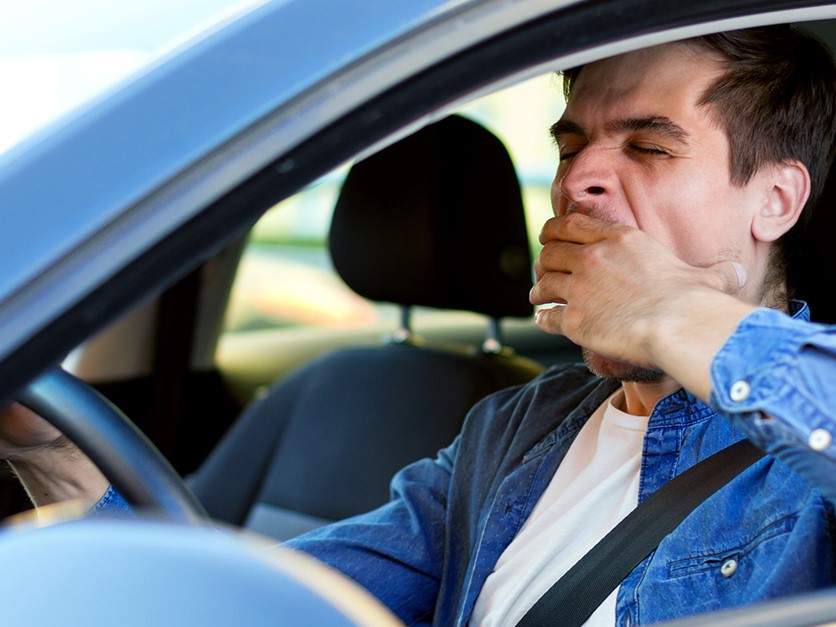Overview
Tiredness is an indication that your body needs to sleep. You need sleep to boost focus and attention and let your body heal cells. Without enough sleep your main senses looses effectiveness (Vision, focus, touch, hearing, smell). The reaction time after a night without sleep can be compared to 0.8 per mille alcohol in the bloodstream. The law regards an accident caused by fatigue as equivalent to one caused by drunken driving.

Different Causes of tiredness
Unrelated to driving
- Exhaustion
- Sleep deprivation
- Alcohol
- Drugs or medications.
Related to driving
- Long and straight roads (Contry roads where the scenary doesn't change much)
- Engine noise (White noise)
- Tyre noise (White noise)
Tiredness impacts you in the following way
- Decision making reduces
- Consentration reduces
- Coordination reduces
- Reaction time reduces
- Perceptive ability reduces
- Maintaining straight course and speed becomes difficult
You know you are getting tired when the following happens
- Frequent yawning
- Head feels heavy
- Overreacting
- Problems concentrating and thinking clearly
- Blurry vision or optical illusion
- Dry mouth
- Feeling cold
- Difficulty maintaining your speed
- Muscle relaxation
- Struggle to keep your eyes open or focused
Other tiredness related topics
- Microsleep: Microsleep describes short bursts of sleep, usually lasting one to several seconds. These episodes might cause people to fall asleep without even recognizing it. While carrying out a crucial duty, some people may experience an episode.
- Sleep apnoea: Breathing interruptions during sleep. This disruption during your sleep at night causes you to be fatigued during the whole day and can cause you to be very tired when driving a car
- Nap: Short sleep between 10-20 minutes
You can reduce tiredness in the following way
- Only drive when you are fully rested.
- Regulate the heat of the car, so that the interior does not become too hot and humid
- Regular breaks (Usually if you driven for 45-60min). you need to take a 10 min break walking out side
- Avoid heavy foods (Pasta, Meats)
- Drink coffee or caffeine, and eat food that give energy such as a energy bar or a banana
Statistics on tiredness
- 40% of single vehicle accidents occur at night or dawn
- Tiredness related accidents is 12 times higher at night than during the day.
- Most tiredness related accidents occur between 02:00 and 05:00. When its your body natural sleeping time
- The most common kind of tiredness accidents is a single vehicle accident. Reason for this is. Once the driver fall asleep the car will just drive off of the road causing only the driver to be in an accident. (There is usually no brake road marks on the road in these accidents because the driver was asleep)
- Most tiredness accidents happen close to the destination (Close to home) When you become familiar with the surroundings your brain feels even more relaxed.
- The likelihood of an accident tiredness is highest in younger males. Reason is they stay out till very late and think they can manage it
